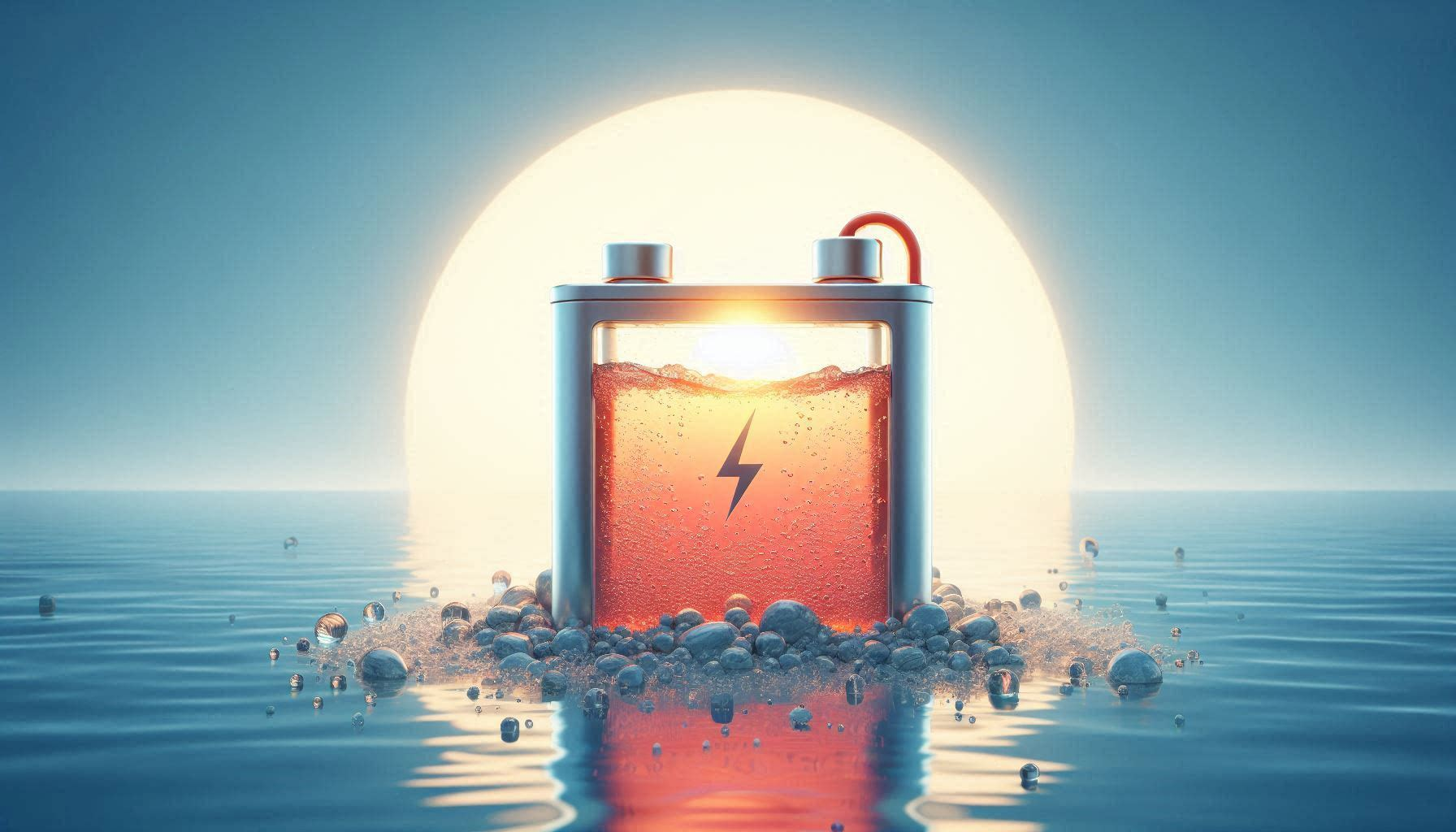Physical Address
W Sunrise St, Bisbee, Arizona 85603
Physical Address
W Sunrise St, Bisbee, Arizona 85603

In a groundbreaking development, Chinese scientists have unveiled a ‘water battery’ with the potential to revolutionize energy storage. This innovative technology boasts an energy density nearly twice that of conventional lithium cells, marking a significant milestone in battery research.
The team from the Chinese Academy of Sciences has developed an aqueous battery that outperforms traditional lithium batteries in terms of energy density, achieving a remarkable 1200 watt-hours per litre (Wh/L) compared to the 700Wh/L of lithium cells1.
| Battery Type | Energy Density (Wh/L) |
|---|---|
| Traditional Lithium | 700 |
| New Aqueous Battery | 1200 |
One of the most compelling advantages of the water battery is its safety. Unlike lithium batteries, which contain highly flammable non-aqueous electrolytes, the aqueous battery uses a water-based solution, significantly reducing the risk of fires1.
🚨 Chinese scientists create ‘water battery’ that can hold much more energy than lithium cells.
— Indian Tech & Infra (@IndianTechGuide) May 15, 2024
This is the type of innovation that we need in India.
The implications of this technology are vast. With further development, water batteries could find applications in grid-scale energy storage and even electric vehicles. This represents a paradigm shift in how we approach energy storage, with a focus on safety, efficiency, and sustainability1.
China’s water battery is not just a scientific achievement; it’s a beacon of hope for a future powered by safer, more efficient, and environmentally friendly energy solutions. As the world moves towards renewable energy sources, innovations like the water battery will play a crucial role in ensuring a sustainable and secure energy future.
This article is based on the latest research findings published in Nature Energy and other reputable sources1. For more detailed information and ongoing updates, please refer to the original publications.